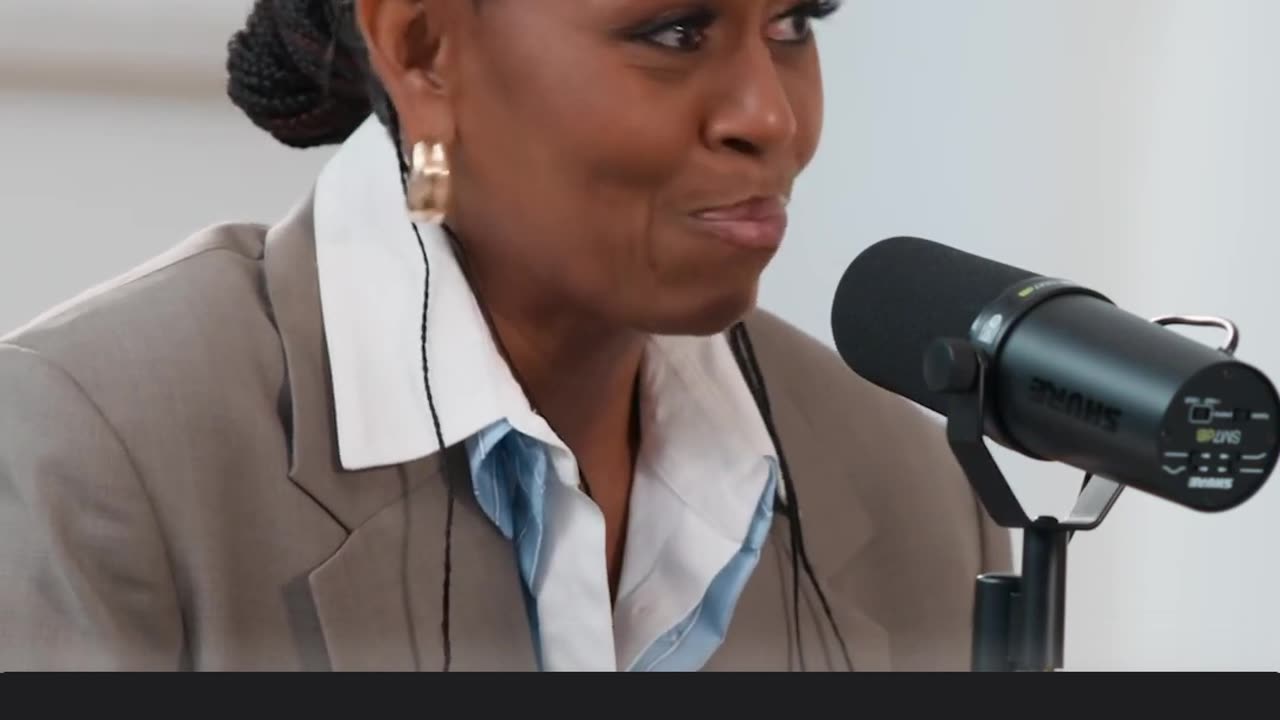Premium Only Content

Michelle Obama: "I wish celebrities could attract votes"
Seth Rogen: "Well, here's what's funny. We actually did. This is sad.
We did a scientific study that was published, where neurologist Richard Isaacson and I taught the same course to children, and we definitively proved that young people learn better from celebrities than from actual doctors.
So whenever someone asks me why I do this, I respond: 'Because science has told me you will retain it better if you hear it from me.'"
Michelle Obama: "The only thing I wish is that it worked with voting.
And not to bring us down... You know, that was the hope."
In recent years, a significant trend has emerged in the U.S. political landscape, marked by a decline in support for the Democratic Party and an increase in affiliation with the Republican Party. An analysis of party registration records conducted by the Associated Press revealed that, over the past year, more than one million voters across 43 states switched to the Republican Party, while approximately 630,000 registered as Democrats.
This shift is particularly notable in suburban areas, where Democrats had previously gained ground. Voters in states such as Colorado, North Carolina, and Georgia have shown a growing preference for the Republican Party, driven by concerns related to vaccination policies, rising crime rates, and approaches to racial justice. For instance, in Larimer County, Colorado, some residents expressed dissatisfaction with Democratic policies, considering them disconnected from their traditional values.
Additionally, the Democratic Party faces internal challenges that impact its cohesion and ability to oppose Republican policies. Following its defeat in the November elections, significant divisions arose within the party, as seen in strategic meetings where figures like Alexandria Ocasio-Cortez criticized decisions made by leaders such as Chuck Schumer. This fragmentation has led to a decline in poll numbers and growing doubts about the Democrats’ effectiveness in opposing Donald Trump's administration.
In contrast, the Republican Party has capitalized on public dissatisfaction by focusing on issues such as inflation, border security, and crime. Republican leaders have attributed the Democrats’ loss of support to a disconnect with the real concerns of the population, suggesting that suburban voters may continue shifting toward the Republican Party in future election cycles.
In summary, the current political dynamics in the United States indicate a weakening of support for the Democratic Party, influenced by internal divisions and controversial policies, while the Republican Party is experiencing a rise in voter registrations and support, particularly in key suburban regions.
-
 LIVE
LIVE
SpartakusLIVE
5 hours ago#1 MACHINE Never Stops The GRIND || LAST Stream UNTIL Friday
20,342 watching -
 28:36
28:36
Afshin Rattansi's Going Underground
1 day agoDoug Bandow: ENORMOUS DAMAGE Done to US’ Reputation Over Gaza, Trump ‘Easily Manipulated’ by Israel
16.5K23 -
 2:45:13
2:45:13
Barry Cunningham
11 hours agoCBS CAUGHT AGAIN! CHICAGO A MESS! LISA COOK IS COOKED AND MORE LABOR DAY NEWS!
82.9K40 -
 LIVE
LIVE
StevieTLIVE
5 hours agoMASSIVE Warzone Wins on Labor Day w/ Spartakus
118 watching -
 10:46:42
10:46:42
Rallied
12 hours ago $12.73 earnedWarzone Challenges w/ Doc & Bob
187K3 -
 3:26:25
3:26:25
Joe Donuts Live
5 hours ago🟢 Lost in Space with My Clones: The Alters Adventure Begins
21.6K -
 7:20:22
7:20:22
Dr Disrespect
13 hours ago🔴LIVE - DR DISRESPECT - TRIPLE THREAT CHALLENGE - WINNING AT EVERYTHING
203K12 -
 2:35:33
2:35:33
Chrono
6 hours agoBirthday-eve Stream | Helldivers II
18.4K1 -
 54:40
54:40
BonginoReport
1 day agoLABOR DAY SPECIAL! The Best of Nightly Scroll - Nightly Scroll w/ Hayley Caronia (Ep.124)
119K14 -
 2:39:21
2:39:21
Joker Effect
4 hours agoReviewing the downfall of Kick Streaming. Kick streamers welcome to Rumble! Stake bombshell found!
27.9K1